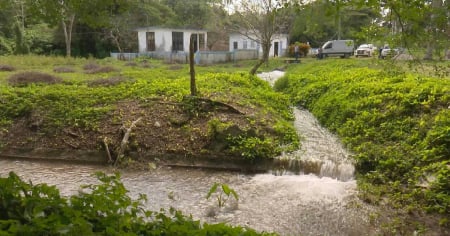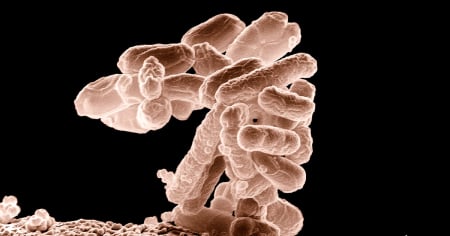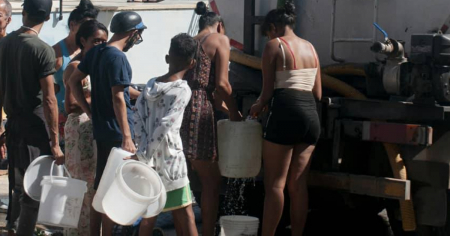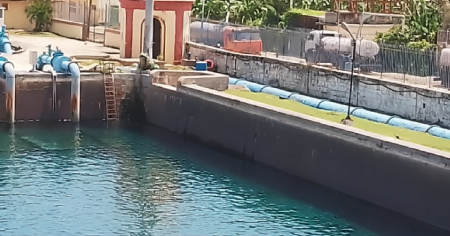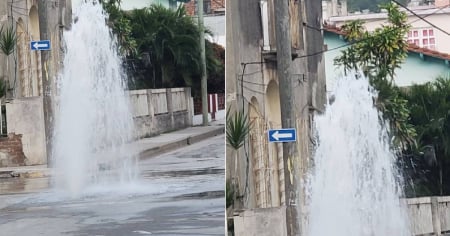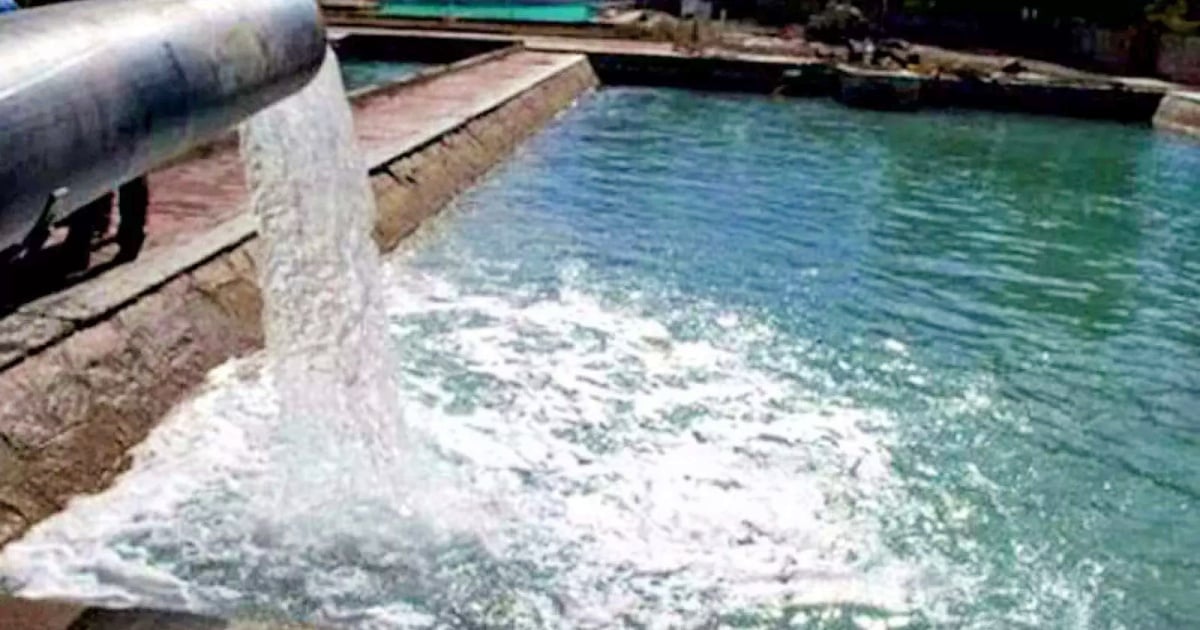
Related videos:
This Monday, February 10, the authorities of Matanzas expect to restore pumping from the supply source Bello, one of the province's main sources, following the contamination incident that necessitated the suspension of service.
However, the restoration of the service will depend on the results of the physicochemical and bacteriological analyses, which must confirm today that the water meets safety standards, according to the newspaper Girón.
These results are expected to be available throughout the day.
Meanwhile, the Health and Epidemiology authorities of Matanzas have issued a warning to residents of the neighborhoods of Versalles, Matanzas Este and Oeste, and El Naranjal: Water must be chlorinated by families before consumption to prevent health risks.
The official source specified that, to ensure water purification, local pharmacies will have sodium hypochlorite, which will also be distributed in medical offices in the area.
Discontent among the population over the water crisis
The situation has generated numerous complaints among the residents of the city of Matanzas, who report the lack of information, the delay in water supply, and the shortage of sodium hypochlorite.
Some citizens have expressed that information is not reaching everyone, particularly elderly individuals and families without access to social media.
"It is necessary that if there is indeed hypochlorite in clinics and pharmacies, they carry out community work even with medical students, so that the population is informed," suggested a resident, who added that many people "do not have a phone or internet connection" to receive these alerts.
Although the authorities assure that there is an availability of sodium hypochlorite, some residents of Matanzas are skeptical. Others warn about the risk of hoarding the substance.
Another reported issue is that many areas have not received water in recent days.
"That will be when we get water, because those of us who depend on the Dubrocq pumping haven't received a drop. They've been saying for two days that they are going to pump, and it's all just a story," complained an annoyed resident.
In other areas, such as Reparto Iglesias, they are also awaiting a solution.
The transparency of the authorities has also come under scrutiny, as previous statements have caused confusion.
"So what the delegate of Hydraulic Resources in the province of Matanzas said yesterday, that the water being pumped was fine, what does that leave us with now? I don't know who I'm supposed to believe," questioned a citizen.
While boiling water is recommended, some citizens have pointed out that this is not always a viable option due to the shortage of gas: "Where is the hypochlorite? Because there is no gas to boil...," lamented a resident.
The water crisis in Matanzas continues to raise concerns and demands among the population, which is calling for quick solutions, clear information, and effective measures to ensure access to safe drinking water.
Pollution in the Bello Basin
Last Wednesday, the Directorate of Hydraulic Resources of Matanzas announced in a statement that a few days prior, there had been a spillage of cachaza at the "Boris Luis Santa Coloma" sugar mill, located in Mayabeque, which had affected the water quality in the supply source of Bello, in Matanzas.
Two days later, following an analysis conducted by experts in hygiene and epidemiology, the health authorities of that province alerted about the presence of fecal coliforms in the body of water.
Dr. Andrés Lamas Acevedo, director of Hygiene and Epidemiology in Matanzas, told the local newspaper that this is not the first time that the water of Bello has been contaminated due to discharges from the sugar mill, and that action needs to be taken to eliminate the damage.
The specialist indicated that a microbiological test conducted on a water sample from Bello revealed the presence of fecal coliforms, “bacteria that can be neutralized by boiling or chlorinating the water.” Despite this, authorities report that both the basin and the cistern have already been cleaned.
Frequently Asked Questions about the Water Supply Crisis in Matanzas
What is the cause of water pollution in Matanzas?
Water pollution in Matanzas is due to a spill of cachaza at the Boris Luis Santa Coloma sugar mill, located in Mayabeque. This spill caused the presence of fecal coliforms in the Bello water supply, posing a health risk to the residents.
What measures should the residents of Matanzas take to consume safe water?
The health and epidemiology authorities of Matanzas recommend boiling water or using sodium hypochlorite to disinfect it before consumption. These measures are essential to prevent gastrointestinal diseases, especially after the detection of fecal coliforms in the water supply.
Why is there a shortage of sodium hypochlorite in Matanzas?
Although authorities assert that local pharmacies and medical offices are stocked with sodium hypochlorite, residents of Matanzas have reported its scarcity. The distrust arises because in recent years there has been a persistent lack of this product, complicating the disinfection of water in households.
What has been the response of the authorities to the water crisis in Matanzas?
The authorities have conducted physical-chemical and bacteriological analyses to assess water quality. Additionally, cistern trucks have been used to supply water to affected areas. However, citizens criticize the lack of transparency and the delay in implementing effective solutions.
Filed under:

